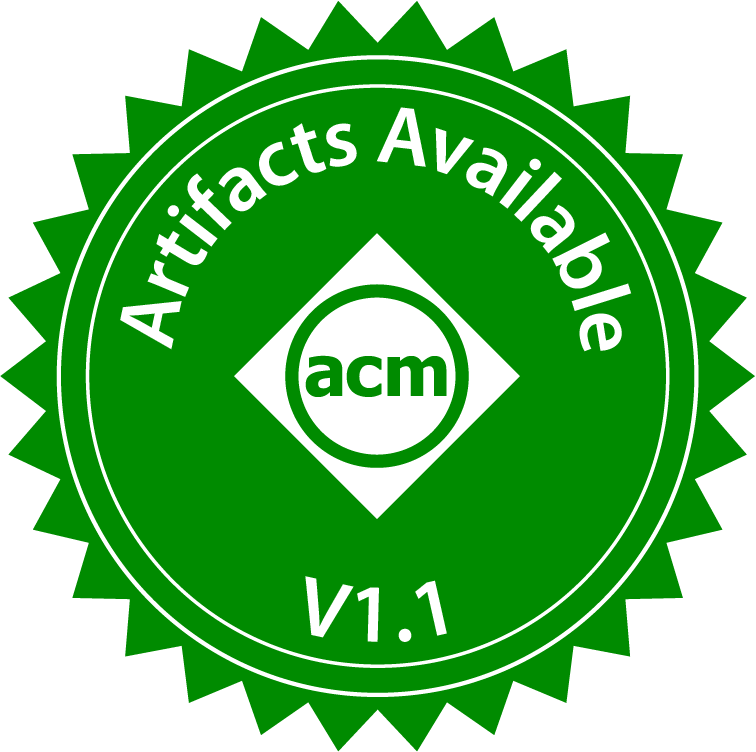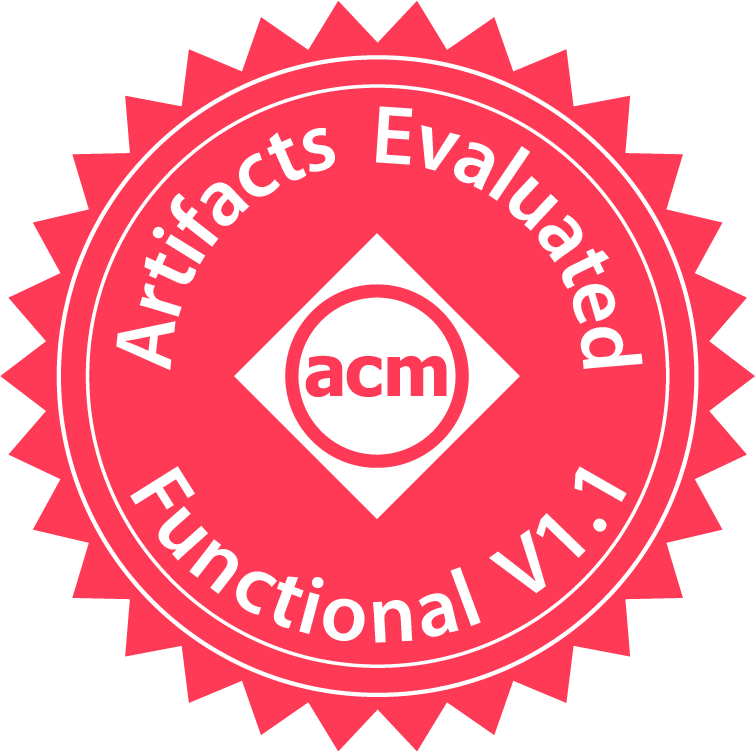Artifact Review Summary: Geometric Partitioning: Explore the Boundary of Optimal Erasure Code Repair
Artifact Details
Badges Awarded
| Artifact Available | Artifact Functional |

|

|
Description of the Artifact
RCStor is open-sourced at https://github.com/rcstor/rcstor
The artifact, written in Golang, is a distributed object store prototype with REST API support. This prototype uses the erasure code repair design described in the paper.
Environment(s) Used for Testing
All reviewers are using CloudLab, Ubuntu 18, with 16 machines of c6525-100g, 16 machines of c6525-25g, or 16 machines of c6320. The detailed machine setup can be found in https://docs.cloudlab.us/hardware.html
Step-By-Step Instructions to Exercise the Artifact
-
Setup the 16 instances in CloudLabs. They have IP addresses
10.10.1.1to10.10.1.16. -
Run the following commands on each machine and then restart the instance.
sudo su
wget https://dl.google.com/go/go1.14.10.linux-amd64.tar.gz
tar -xvf go1.14.10.linux-amd64.tar.gz -C /usr/local/
echo 'export GOROOT=/usr/local/go' >> ~/.profile
echo 'export GOPATH=$HOME/go' >> ~/.profile
echo 'export PATH=$GOPATH/bin:$GOROOT/bin:/usr/local/bin:$PATH' >> ~/.profile
source ~/.profile
apt update
apt install openssh-client openssh-server -y
systemctl start sshd
ssh-keygen
echo 'root soft nofile 1048576' >> /etc/security/limits.conf
echo 'root hard nofile 1048576' >> /etc/security/limits.conf
(It is necessary to increase the limit of the number of opened files, because the artifact opens many connections.)
-
Run
sudo suon all the instances after restarting. -
On the first server, run:
git clone https://github.com/rcstor/rcstor.git
cd rcstor
make install
- Run the following commands on each machine to copy the SSH keys:
ssh-copy-id root@10.10.1.1 -o StrictHostKeyChecking=no
...
ssh-copy-id root@10.10.1.16 -o StrictHostKeyChecking=no
- Mount the storage on each machine:
apt install xfsprogs -y
mkfs -t xfs /dev/sda4
mkdir /mnt/geop
mount /dev/sda4 /mnt/geop
- Create the following JSON file following the instructions.
{
"VolumeName": "Geometric-1M",
"Servers" : [
{
"IP" : "10.10.1.1",
"Dir" : [
"/mnt/geop"
]
},
...
{
"IP" : "10.10.1.16",
"Dir" : [
"/mnt/geop"
]
}
],
"VolumeParameter" : {
"nPG" : 200,
"Layout" : "Geometric",
"K" : 10,
"Redundancy" : 4,
"MinBlockSize" : 1048576,
"MaxBlockSize" : 268435456,
"GeometricBase" : 2,
"IsSSD" : false,
"HTTPPort" : 8080
}
}
-
Start the service using this new JSON file.
-
Use the
README.mdto test the PUT/GET method of the storage server. -
Use the genParity method to generate the parity, and then test the DGET method.
-
Test the recovery.
-
Drop the volume.
How The Artifact Supports The Paper
The artifact is submitted for and is awarded the Available and Functional badges.
The reviewers are able to:
- build the artifact following the instructions
- create a volume
- use put/get operations to store a file and retrieve it
- generate the parity
- run degraded read and recovery
It supports the paper by showing that the proposed optimal erasure code repair is functional.
Additional Notes and Resources
In our test environment, a few reviewers saw the messages “Not responding, begin to ping.” The current prototype may be opening too many connections.